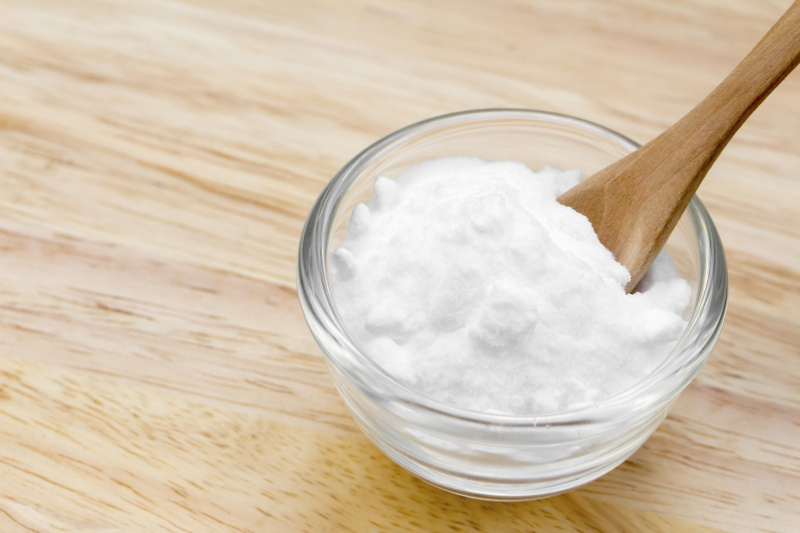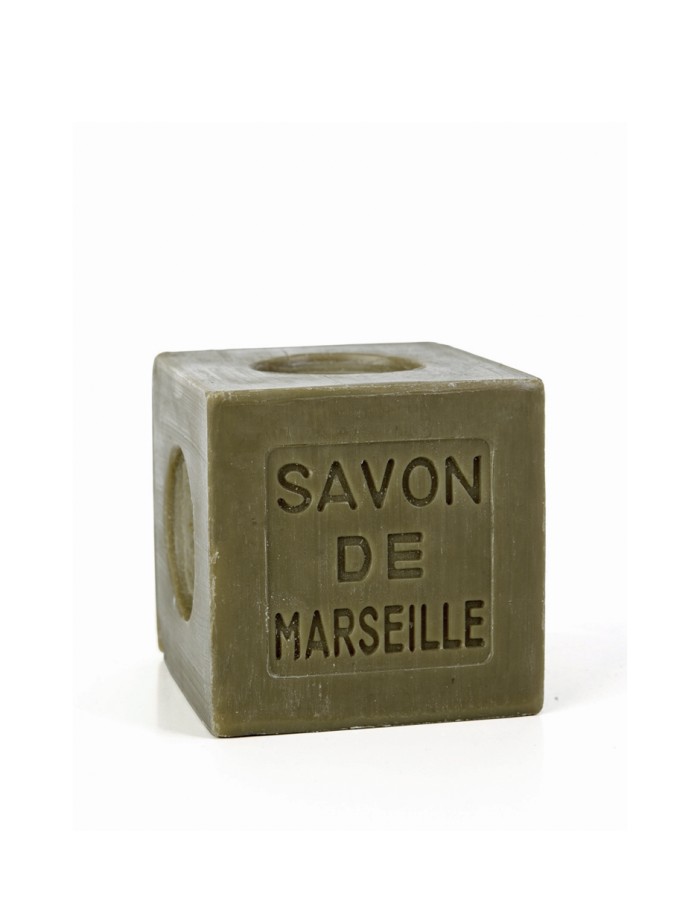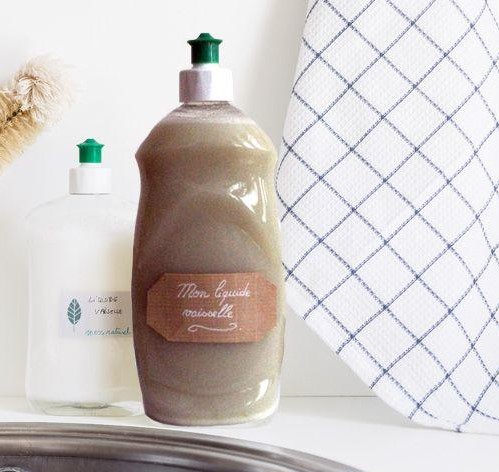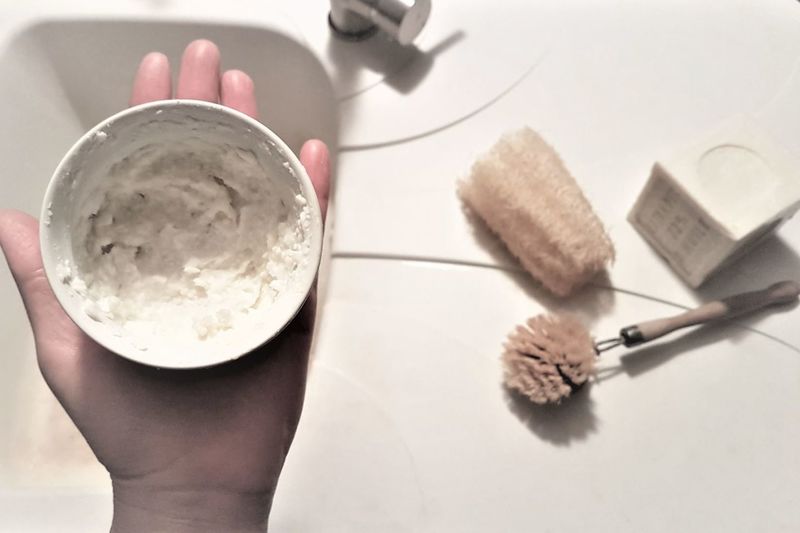(Page créée avec « - Other zero waste recipes sourced and verified on the Planète Healthy website: https://planetehealthy.com/recette-liquide-vaisselle-maison/ ») |
(Page créée avec « - Recipe for hand dishwashing liquid: https://planetezerodechet.fr/liquide-vaisselle-moussant-maison-diy-zero-dechet/ ») |
||
| Ligne 96 : | Ligne 96 : | ||
- Other zero waste recipes sourced and verified on the Planète Healthy website: https://planetehealthy.com/recette-liquide-vaisselle-maison/ | - Other zero waste recipes sourced and verified on the Planète Healthy website: https://planetehealthy.com/recette-liquide-vaisselle-maison/ | ||
| − | - | + | - Recipe for hand dishwashing liquid: https://planetezerodechet.fr/liquide-vaisselle-moussant-maison-diy-zero-dechet/ |
}} | }} | ||
{{PageLang | {{PageLang | ||
Version actuelle datée du 24 juillet 2024 à 15:52
Description
2 quick, economical and ecological recipes for natural dishwashing products and hand dishwashing detergents
Introduction
The detergents used in dishwashing products are harmful to the environment. Every year in France, 10,000 tonnes of detergents are used to wash dishes. Practices are gradually changing and manufacturers are trying to remove phosphates from the composition of their detergents. Unfortunately, many powders and tablets still contain far too many phosphates.
Compounds generally found in dishwasher tablets:
- Phosphonates: poorly biodegradable compounds that contribute to the asphyxiation of aquatic environments.
- Polycarboxylates: non-degradable petrochemical substances.
- Surfactants: petrochemical substances that are often allergenic.
- Synthetic fragrances: may be allergenic.
Here's a recipe made from 100% natural, economical and environmentally-friendly products. It's up to you!
.
Matériaux
Product for dishwasher detergent
- 1 tablespoon sodium percarbonate
- 3 tablespoons of soda crystals = sodium carbonate (caution: do not confuse with caustic soda!)
- 2 tablespoons citric acid
- 1 tablespoon bicarbonate
- White vinegar (add when washing)
Hand dishwashing product
- Savon de Marseille
- Black soap
Outils
- 1 tablespoon
- 1 airtight jar
Étape 1 - Details of ingredients
- Sodium bicarbonate : acts as a cleaner, scourer and deodoriser. It dissolves the fats and proteins responsible for stains and reinforces the action of homemade washing-up liquid. It prevents the proliferation of bacteria and softens hard water. Made from limestone and salt, bicarbonate is naturally present in the body and is harmless to health. It gives off no fumes and does not evaporate. Price ~3-4 euros/kg
- Soda crystals or sodium carbonate : Used for its degreasing and disinfecting action. They are a chemical element obtained naturally from natron deposits, but which we now know how to make from salt and chalk. Expect to pay ~3-4 euros/kg.
- Sodium percarbonate : An effective, non-toxic, biodegradable stain remover made from water, salt and chalk. It breaks down in water to produce hydrogen peroxide and sodium carbonate. Count ~5-7euros /kg
- White vinegar: A cleaning product with a wide range of properties, we use it here for its descaling and disinfecting properties. Count ~1euro/
- Savon de Marseille : In block C.ompter ~10 euros/kg. Be careful to choose real Marseille soap, only 4 companies make the original ‘Savon de Marseille’.
- Black soap: in liquid concentrate €8.5/L. It complements Marseille soap for its effectiveness against grease and burns. Highly degreasing, it can damage hands if not diluted.
- Citric acid: 100% natural, made from molasses (sugar cane fermentation) and a microscopic fungus. Totally biodegradable, it acts as an anti-scale agent that removes limescale, cleans and dissolves white deposits. It's also a fantastic antioxidant.
Étape 2 - Making and using dishwasher detergent
- Mix the different ingredients in an airtight jar. Preserve from humidity.
.
- Put a heaped teaspoon of white vinegar in the rinse compartment to descale and disinfect your machine.
- Add white vinegar to the rinse compartment to descale and disinfect your machine. No smell on the dishes.
- Add coarse salt to the regenerating salt compartment.
Étape 3 - Hand dishwashing detergent
Simplistic version:
- Simply use a block of Savon de Marseille.
- Scrub the surface with a damp sponge. Then scrub your dishes as normal, preferably in hot water.
Liquid/gel version:
- Melt 5 tablespoons of Marseillerapé soap in a little hot water in a saucepan.
- Add 5 tablespoons of black soap and mix well.
- Complete the volume of the washing-up liquid bottle with hot water and mix well to homogenise.
- DO NOT COMPLETE WITH WINEGAR, even partially, otherwise the washing-up liquid will go out of phase with the fatty glycerine part rising up and clogging your dishes. Tested and regretted!
Remember to shake lightly before use. If you want to thicken the liquid, you can use rice cooking water or add a little clay to the mixture (the liquid naturally thickens slightly as it cools).
By diluting this mixture less you can also make a dish cake, the famous clay paste, without SCI or other surfactants than those in soaps!
A light greasy layer may remain on your dishes after rinsing. To remove this soap residue, rinse your dishes by hand in hot water.
Notes et références
- Details on the composition of dishwasher tablets: https://lave-vaisselle.ooreka.fr/astuce/voir/283068/lave-vaisselle-substances-cachees-dans-les-tablettes
- Other zero waste recipes sourced and verified on the Planète Healthy website: https://planetehealthy.com/recette-liquide-vaisselle-maison/
- Recipe for hand dishwashing liquid: https://planetezerodechet.fr/liquide-vaisselle-moussant-maison-diy-zero-dechet/
Published




 Français
Français English
English Deutsch
Deutsch Español
Español Italiano
Italiano Português
Português